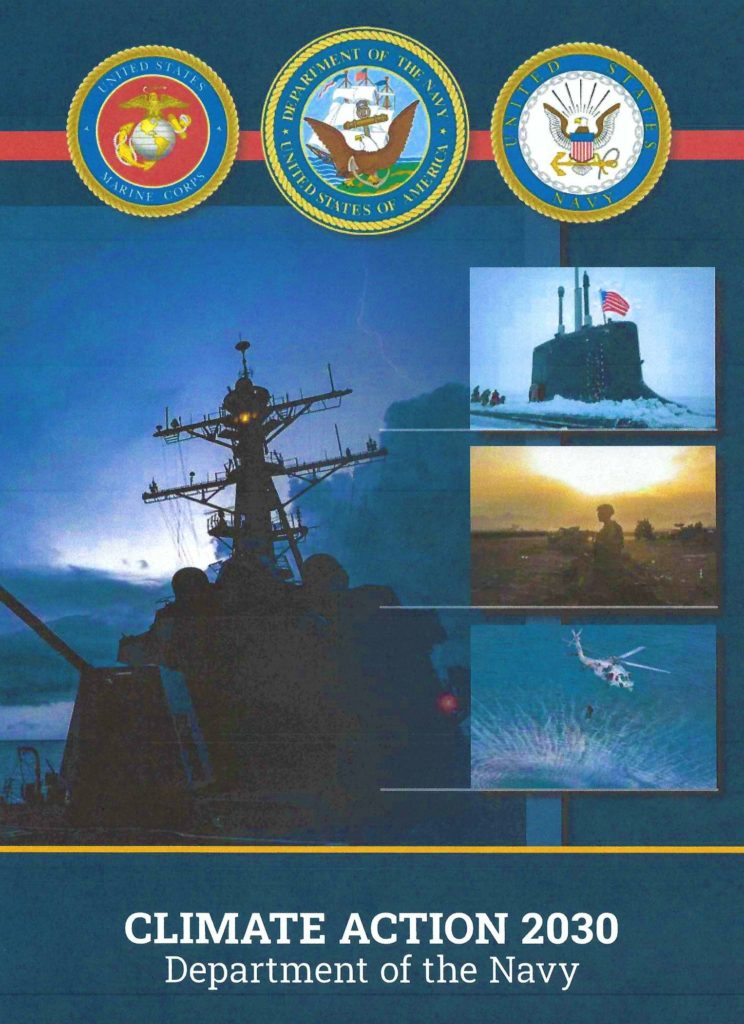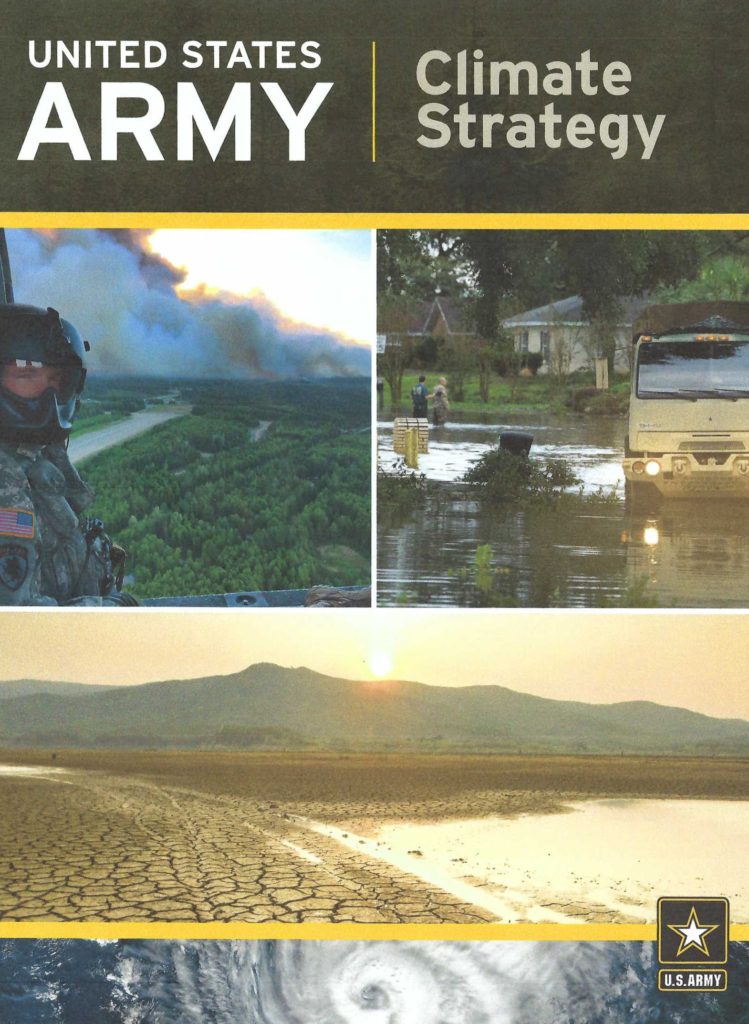Commentary
Regular readers may recall my criticism of President Biden’s remarks at the Naval Academy’s graduation and commissioning ceremony during which he failed to mention how China is ramping up its navy while we are reducing our inventory.
Upon receiving a copy of “Climate Action 2030,” recently released by Navy Secretary Carlos Del Toro, in which he identifies climate change as an “existential threat” to the U. S. Navy and the nation, my curiousity caused me to reread Biden’s remarks. Surely, I would have remembered his referencing climate change as a threat.
Reviewing the transcript, about halfway into his remarks, Biden merely made a casual reference to climate change leading to rising seas and more severe weather patterns around the globe.
In the foreward to the full color 32-page report, Del Toro wastes no time in getting to the threat. “Climate change is one of the most destabilizing forces of our time, exacerbating other national security concerns and posing serious readiness challenges.
“Our naval forces, the United States Navy and Marine Corps, are in the crosshairs of the climate crisis, the threat increases instability and demand on our forces while simultaneously impacting our capacity to respond to demands.”
With a reminder that one of Biden’s first acts was to prioritize climate change as an essential element of national security, while noting Defense Secretary Austin’s “championing” that prioritization, it isn’t surprising that Del Toro obviously decided he better get on board, choosing “climate as a focal point for my tenure as secretary.”
“The Department of the Navy will take on the urgency of the climate crisis and harness our power to make change,” Del Toro states, “bold climate action is a mission imperative. In this decisive decade, we have no other alternative.”
Climate Action 2030 has two goals: To ensure that our forces, systems, and facilities can continue to operate effectively and achieve the mission in the face of changing climate conditions and worsening climate impacts; and to reduce greenhouse gas emissions and draw greenhouse gases out of the atmosphere to stabilize ecosystems, and achieve, as an enterprise, the president’s commitment to net-zero emissions by 2050, as well as other targets.
Achieving those goals, “will make us a more capable, agile and lethal fighting force,” claims Del Toro.
Meanwhile, China continues to display its aggressive growth in support of its navy, as evidenced not only by their activities in the China Seas, we are witnessing their expansion in the Indian Ocean and other locations.
I was reminded of the effort in the 1980’s by former Navy Secretary John Lehman to build a 600-ship navy in a piece by Francis P. Sempa in The American Spectator. It was Lehman, who convinced former President Reagan of the need for a massive build-up and implementation of a maritime strategy during the Cold War.
It was in Lehman’s book, “Oceans Ventured: Winning the Cold War at Sea,” that he commented on the post-Cold War naval decline, and how it “invited” today’s challenge by China.
“States that wish to wield global influence maintain global navies, whereas states that abandon their focus in the seas see their power decline and their hopes fade,” wrote Lehman. “China understands that lesson,” commented Sempa, “Secretary Del Toro, Defense Secretary Austin and President Biden do not.”
I found it interesting that the supposed threat of climate change was not included in the West Point graduation speech by Gen. Mark Milley, Chairman of the Joint Chiefs of Staff. Is it an “existential threat” or not?
“At this very moment,” Milley said, “a fundamental change is happening in the very character of war. We are facing, right now, two global powers: China and Russia, each with significant military capabilities, and both fully intend to change the current rules-based order.”
The U.S. Army announced its climate strategy in February, but without hysterical references to it being an “existential threat.”
While its strategy recognizes that climate change will make its mission more challenging, noting that “risks associated with climate change are broad, significant, and urgent,” it states that “the Army’s core purpose remains unchanged: to deploy, fight and win the nation’s wars by providing ready, prompt, and sustained land dominance as part of the Joint Force.” Hear, Hear!
“The Army will mitigate and adapt to climate change, and in doing so gain strategic advantage, especially as we continue to outpace our near-peer competitors,” said Army Secretary Christine E. Wormuth in the foreward to her 20-page climate strategy.
But don’t think for a minute that Biden’s Green New Deal goal of reducing the use of fossil fuels is being ignored by the Army. It plans to slash emissions in half by 2030, electrify all noncombat vehicles by 2035, and develop electric combat vehicles by 2050. Good luck with that.
May God continue to bless the United States of America.







